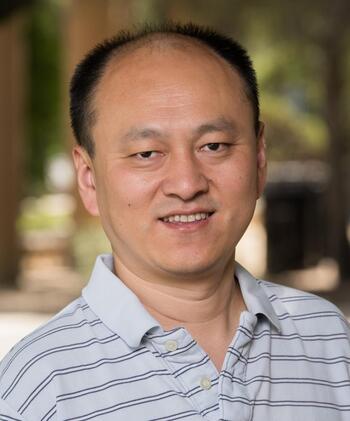The Impacts of Pollution Levies on Chinese Firms with Professor Junjie Zhang
The Impacts of Pollution Levies on Chinese Firms with Professor Junjie Zhang
Tuesday, February 1, 20224:00 PM - 5:15 PM (Pacific)
Academic Seminar | Zoom Meeting
Registration Required
Tuesday, February 1, 2022 | 4:00-5:15 pm Pacific Time
The Impacts of Pollution Levies on Chinese Firms
China's rollout of emission fee reform since 2007 provides a quasi-natural experiment to study the effectiveness of pollution levy on firm emissions and economic consequences. Using firm-level financial and pollution data, we find that doubling the levy rate leads to a 6.87% reduction in SO2 emissions. Firms achieve emission abatement through reducing output and coal consumption rather than end-of-the-pipe solutions.
About the Speaker

Junjie Zhang is Associate Professor of Environmental Economics in the Nicholas School of the Environment at Duke University. Since 2016, he has founded the Environmental Research Center and International Master of Environmental Policy Program at Duke Kunshan University. During 2021-22, he serves as Volkswagen Visiting Chair in Sustainability in the Schwarzman College at Tsinghua University. Zhang is a co-chair for the Environmental Economics Committee in the Chinese Academy of Environmental Science, an advisory board member for the Nicholas Institute for Environmental Policy Solutions, and a board member for the Professional Association for China's Environment. He has also served on the editorial board of several academic journals. Before his current position, he was an associate professor in the School of Global Policy and Strategy at the University of California, San Diego. Zhang's research centers on empirical policy issues in air pollution, energy transition, and climate change. He has received fundings from the U.S. National Science Foundation, U.S. National Oceanic and Atmospheric Administration, China National Natural Science Foundation, China's Ministry of Ecology and Environment, China Council for International Cooperation on Environment and Development, Energy Foundation, Packard Foundation, World Bank, and Asian Development Bank. He holds a B.S. from Renmin University of China, a B.S. and an M.S. from Tsinghua University, and a Ph.D. from Duke University.
Seminar Series Moderators:

Scott Rozelle is the Helen F. Farnsworth Senior Fellow and the co-director of Stanford Center on China's Economy and Institutions in the Freeman Spogli Institute for International Studies and Stanford Institute for Economic Policy Research at Stanford University. For the past 30 years, he has worked on the economics of poverty reduction. Currently, his work on poverty has its full focus on human capital, including issues of rural health, nutrition and education. For the past 20 year, Rozelle has been the chair of the International Advisory Board of the Center for Chinese Agricultural Policy, Chinese Academy of Sciences (CAS). Most recently, Rozelle's research focuses on the economics of poverty and inequality, with an emphasis on rural education, health and nutrition in China. In recognition of this work, Dr. Rozelle has received numerous honors and awards. Among them, he became a Yangtse Scholar (Changjiang Xuezhe) in Renmin University of China in 2008. In 2008 he also was awarded the Friendship Award by Premiere Wen Jiabao, the highest honor that can be bestowed on a foreigner.

Hongbin Li is the Co-director of Stanford Center on China's Economy and Institutions, and a Senior Fellow of Stanford Institute for Economic Policy Research (SIEPR) and the Freeman Spogli Institute for International Studies (FSI). Hongbin obtained his Ph.D. in economics from Stanford University in 2001 and joined the economics department of the Chinese University of Hong Kong (CUHK), where he became full professor in 2007. He was also one of the two founding directors of the Institute of Economics and Finance at the CUHK. He taught at Tsinghua University in Beijing 2007-2016 and was C.V. Starr Chair Professor of Economics in the School of Economics and Management. He founded the Chinese College Student Survey (CCSS) in 2009 and the China Employer-Employee Survey (CEES) in 2014.
Hongbin’s research has been focused on the transition and development of the Chinese economy, and the evidence-based research results have been both widely covered by media outlets and well read by policy makers around the world. He is currently the co-editor of the Journal of Comparative Economics.
Register Here
Register once to receive the Zoom meeting link that will be used for all lectures in this series.
